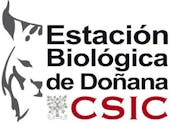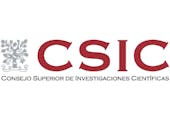My research activity focuses on the analyses of the impact of ecological processes and anthropic alterations of the environment on the transmission of mosquito-borne pathogens. This is currently an area of growing interest given the increase in the incidence of emerging and re-emerging diseases in the modern scenario. During my Ph.D. I have described the environmental factors affecting the composition and distribution of the mosquito community (Ferraguti et al. 2016, Sci Rep) and the role of biotic and abiotic factors that determine the infection of wild vertebrates (Ferraguti et al. 2018, J Anim Ecol; Martínez-de la Puente, Ferraguti et al. 2018, Sci Rep), finally identifying how biodiversity globally determines the exposure and success of transmission of these pathogens in the wild (Ferraguti et al. 2021, Plos Path). These results allowed me, and the scientific community, to identify the complex transmission networks of vector-borne pathogens, including those that potentially spread emerging zoonotic diseases and could have an impact on human and animal health.
In 2016 I expanded my knowledge on epidemiology by collaborating with Prof. Hans Heesterbeek from Utrecht University, a world expert in Epidemiology. There, I learned the theoretical background to develop mathematical models of biological processes (e.g., the basic reproduction number R0) of the transmission of two mosquito-borne pathogens: West Nile virus and the avian malaria Plasmodium (Ferraguti et al. 2021 Trans Inf Dis).
After completing my PhD, I was granted two consecutive postdoctoral contracts in national and European competitive calls to develop my research in institutes different than the EBD-CSIC (where I did my thesis): the Juan de la Cierva (JdC) – Formación and the Marie Sklodowska Curie Fellowship (MSCA-IF). In 2018, I started the JdC with Prof. A. Marzal at the University of Extremadura, where I expanded my work on disease ecology by exploring the host-pathogen relationships of avian malaria parasites from a multidisciplinary perspective in the context of the receiving group’s line of research. During this period, I expanded my knowledge of vertebrate hosts, in particular birds, studying the environmental, geographical, and time-related impacts on avian malaria infections in native and introduced populations of house sparrows (Ferraguti et al. 2023, GEB).
In January 2021, I started my Marie Curie project at the University of Amsterdam (UvA) to join Dr. Y. Artzy-Randrup, a theoretical ecologist with a unique background in mathematical modelling of infectious diseases, where I was learning the theoretical background to develop epidemiological models of biological processes applied to mosquito-borne pathogens (Ferraguti et al. 2023, https://dx.doi.org/10.21203/rs.3.rs-2639794/v1).
Currently, I am back in Spain at the EBD-CSIC where in January 2023 I started my Ramón y Cajal position.
Experience
-
–presentInvestigadora Ramón y Cajal, Estación Biológica de Doñana (EBD-CSIC)
Education
-
2017Estación Biológica de Doñana, PhD in Biology



